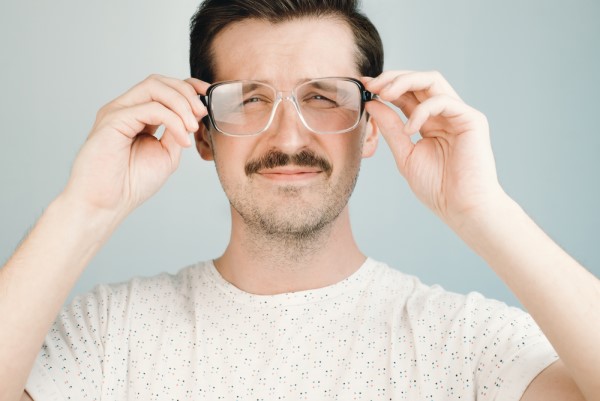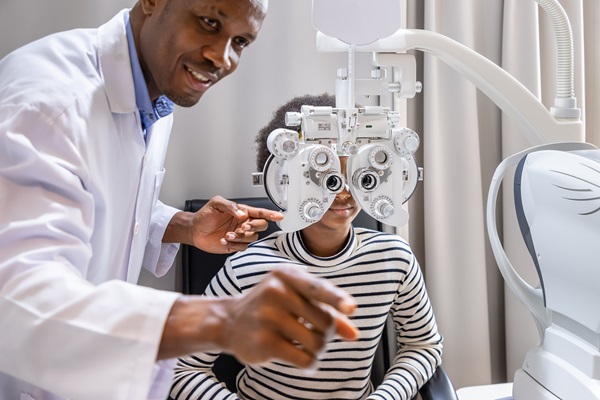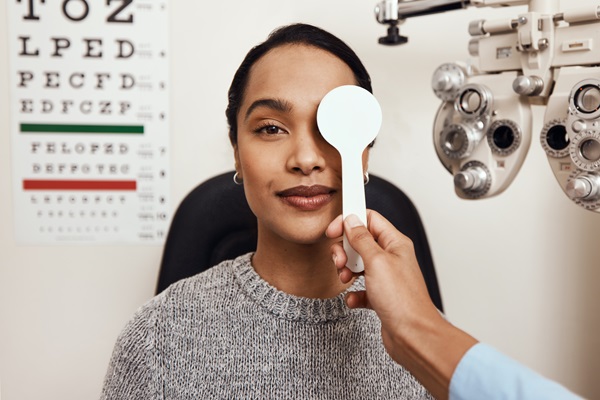Low Vision Treatment

The term low vision refers to a person having 20/70 vision or worse. When a person's vision is this bad, vision aids like contact lenses and prescriptions lenses are not enough to restore the patient's vision. People who need low vision treatments are typically partially sighted – which means their vision is between 20/70 to 20/200 when using corrective lenses. People with vision worse than 20/200 with corrective lenses are considered legally blind.
How people who need low vision treatment receive a diagnosis
Optometrists can easily spot low vision during an eye exam. A patient with 20/70 vision or worse will have a hard time reading letters off a Snellen chart. Low vision is a medical term that refers to a person's sight being 20/70 or worse. Many patients cannot correct low vision completely by using prescription glasses or contact lenses. Patients with low vision can be either partially sighted, or legally blind. Fortunately, there are a few treatments that can improve the quality of life of people with low vision.
What causes low vision
Low vision can be caused by a variety of eye conditions and diseases. Some of the more common culprits include:
- Macular degeneration: This disorder affects the retina, leading to blurred vision and a blind spot
- Diabetic Retinopathy: This occurs when high blood sugar levels damage the tiny blood vessels that supply the retina with blood
- Retinitis Pigmentosa: This condition inhibits peripheral vision and can lead to night blindness. Its first symptoms begin to show up during childhood
- Amblyopia: This leads to blurry vision in either eye or both
- Retinopathy of Prematurity (ROP): This can occur in premature babies
- Retinal Detachment: Damage to the eye leads to the retina separating from its bottom layer. It can lead to vision loss and permanent blindness
- Cataracts: Cataracts can cloud the lens in the eye affecting a person's vision
- Glaucoma: This damages the optic nerve. It can lead to vision loss
- Brain Injuries: Severe brain damage caused by trauma or medical conditions like a stoke can inhibit a person's vision
Low vision treatment options
Given the vast variety of eye disorders and health conditions that can lead to low vision, the treatment options the optometrist typically recommends are those that address the cause of the patient's poor eyesight. These include:
- Injecting the patient's eyes with medication. This can help to prevent vision loss and improve the person's vision
- Surgical treatments. For example, a person with cataracts clouding their lens can improve their vision by having their natural lens removed and replaced with a prosthetic one
- Prescriptions eye drops can be used to treat conditions like glaucoma
- Low vision aids can help to magnify images and improve the patient's vision
- Proper eye nutrition can improve a person's vision. The optometrist can advise the patient about Selenium, Zinc, and other vitamin supplementation
While low vision can be a permanent condition, there are many treatments and aids that allow the patient to still enjoy a good quality of life.
Check out what others are saying about our services on Yelp: Low Vision Treatment in Dallas, TX.
Recent Posts
Blurry vision can interfere with the life that you want to live. It can make you less able to engage with your surroundings and may even limit your ability to do daily tasks, such as driving. However, by searching the internet for "optometrist near me", you can find a professional to help resolve your blurry…
Think you might need a vision test? Read on to learn more. Vision is an element of our everyday routine and impacts exactly how we relate to the world. Nevertheless, these changes in eyesight are usually subtle and gradually decrease the quality of life without notice. These changes can be detected with regular vision tests.…
A contact lens exam is the most accurate way to ensure that a new corrective lens fits properly on the eye’s surface. Contact lenses that fit well can help you see more clearly without causing dry eyes or discomfort. A contact lens exam is a simple process, and it can even be conducted alongside a…
Long gone are the days of choosing between clear vision and eye protection. Safety glasses are available to all who need them, whether working in a factory, landscaping, or playing sports. Here is what you can expect when consulting our optometrist for these glasses.No matter the reason one needs safety glasses, patients will require an…


